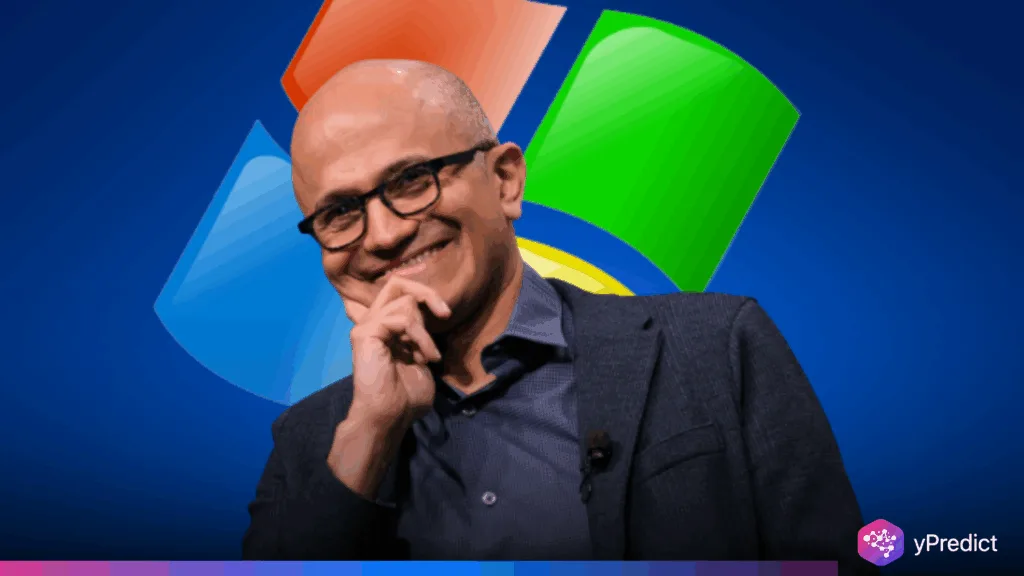
Microsoft CEO Satya Nadella recently expressed pessimistic fears about AI’s impact on Microsoft’s future. Nadella fears the company could stumble like DEC, a once-mighty giant that collapsed after missing an essential tech shift. He reminded employees that several Windows NT engineers once worked at DEC — how fast titans topple when they don’t keep up. Even with an $80 billion bet on AI infrastructure, Nadella admits legacy giants like Windows are doomed in the AI era Thousands of layoffs tied to this pivot had pummeled morale, with employees describing Microsoft as colder and more soulless. Meanwhile, Elon Musk added fuel to the fire, claiming his new AI startup could replicate Microsoft’s software stack—confronting their dominance head-on. Nadella’s concerns reveal the razor-thin line Microsoft must walk to stay alive in an AI-driven world.
Microsoft CEO’s AI Warning and Strategic Pivot
Microsoft CEO Satya Nadella cautioned that it could go DEC’s way — once brilliant, the industry’s former star imploded after missing a crucial tech transition. His concern at the core is that Microsoft’s flagship offerings — such as Windows — will end up irrelevant in the AI disruption. in response, microsoft is pouring $80 billion into ai infrastructure, rapidly building out data centers worldwide to cement ai hegemony. This pivot marks a massive strategic reset designed to embed AI into the company’s core.
But Nadella stressed that the innovation has to be relentless, and the transformation is costly. And then some — Microsoft, for example, busted its head out the door, laying off more than 15,000 employees in 2024 and 2025 and reorganizing itself around AI needs. These layoffs shook morale, with a number of people saying the culture was more impersonal and colder. Still, Nadella views it as an imperative to survive. The DEC comparison stands as a sharp warning—fail to adapt, and history could repeat itself.
Workforce Impact and Industry Context
Nadella’s AI pivot has taken a heavy toll on the workforce. In 2025, thousands more jobs were slashed as Microsoft doubled down on funding its AI ambitions. Entire chunks, from gaming to cloud, caught the blaze. Workers candidly described the brutal, cogs-in-a-wheel culture that emerged after those cuts. Nadella admitted as much, acknowledging the cultural sacrifices behind the restructuring.
The trend extends beyond Microsoft. Google just scrapped 200 ai contractor jobs relying even more on automation via tech.ai adoption is changing—or eliminating– jobs across tech. On the flip side, Elon Musk’s AI startup, Macrohard, blatantly goes after Microsoft by clone its suite of software. Research shows AI can already automate 70% of office work, but productivity drops when developers use nascent AI tools. Companies, including Microsoft, face the same dilemma: harness AI’s potential without hollowing out the workforce’s value.
Microsoft CEO Faces High Stakes
Satya Nadella is bartering with one of the most important moments of his career. His fear of tech disruption propels an $80 billion bet to pivot Microsoft to an AI-first future. By referencing DEC’s demise, he cautions his firm what’s at stake—and what failure to pivot looks like. But with layoffs, cultural cooling and risk of top talent fleeing, the company stands internal fragility just when innovation is most desperate. on the outside, musk’s new venture ramps up pressure by promising to replicate microsoft’s own magic Nadella needs to tread carefully—driving innovation, bringing culture back to life and staying in the game at Microsoft. The alternative? Reliving the same autumn that DEC had once surfaced.





